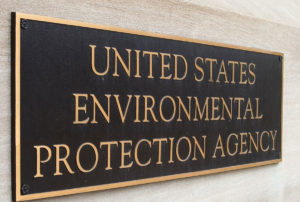 Representatives from multiple ethanol and biodiesel stakeholder organizations and companies delivered basically the same message to the Environmental Protection Agency during a hearing Wednesday on the proposal to make up for volumes lost under the Renewable Fuel Standard due to small refinery waivers – nice try, but you still need to follow the law.
Representatives from multiple ethanol and biodiesel stakeholder organizations and companies delivered basically the same message to the Environmental Protection Agency during a hearing Wednesday on the proposal to make up for volumes lost under the Renewable Fuel Standard due to small refinery waivers – nice try, but you still need to follow the law.
Iowa Secretary of Agriculture Mike Naig testified to the sense of betrayal experienced by the industry when the proposal was announced:
“On Oct. 4, we celebrated when the EPA announced that it would reallocate waived gallons based on a three-year rolling average of actual exemptions. This would ensure the future RFS levels would be met, and I was proud to support this deal,” said Naig. “A week later, we were astonished to learn that the EPA had rebuffed President Trump’s commitment to Iowa’s leaders and proposed a rule which offered no accountability or transparency, and fell short of the 15 billion gallon commitment. The proposed rule is eroding the public’s trust and creating even more uncertainty in the market.”
Renewable Fuels Association President and CEO Geoff Cooper – “This proposal fails to reflect the letter and spirit of the president’s commitment to restore integrity to the RFS, fails to assure that the statutorily-required 15-billion-gallon level for conventional biofuels will be met, and fails to restore stability in the marketplace by definitively ending the practice of allowing small refinery exemptions from eroding RFS biofuel demand.”
EPA Hearing RFA TestimonyAmerican Coalition for Ethanol CEO Brian Jennings – “While this proposal is not going to make renewable fuel producers whole for EPA’s prior abuse of SREs, we urge the Agency to take a small step in the right direction by issuing a final rule which reallocates the actual average volume waived from 2016 through 2018 and ensures at least 15 billion gallons for the 2020 compliance year.”
EPA Hearing ACE TestimonyNational Biodiesel Board Director of Regulatory Affairs Kate Shenk – “EPA should change how it accounts for small refinery exemptions in the final rule in order to ensure that the renewable volume obligations are achieved. EPA could do so by taking further steps to limit the number of exemptions it grants in the future. Or, it could base its estimate for the number of small refinery exemptions in 2020 on the number of exemptions it has actually granted in recent years.”
EPA Hearing NBB Testimony
